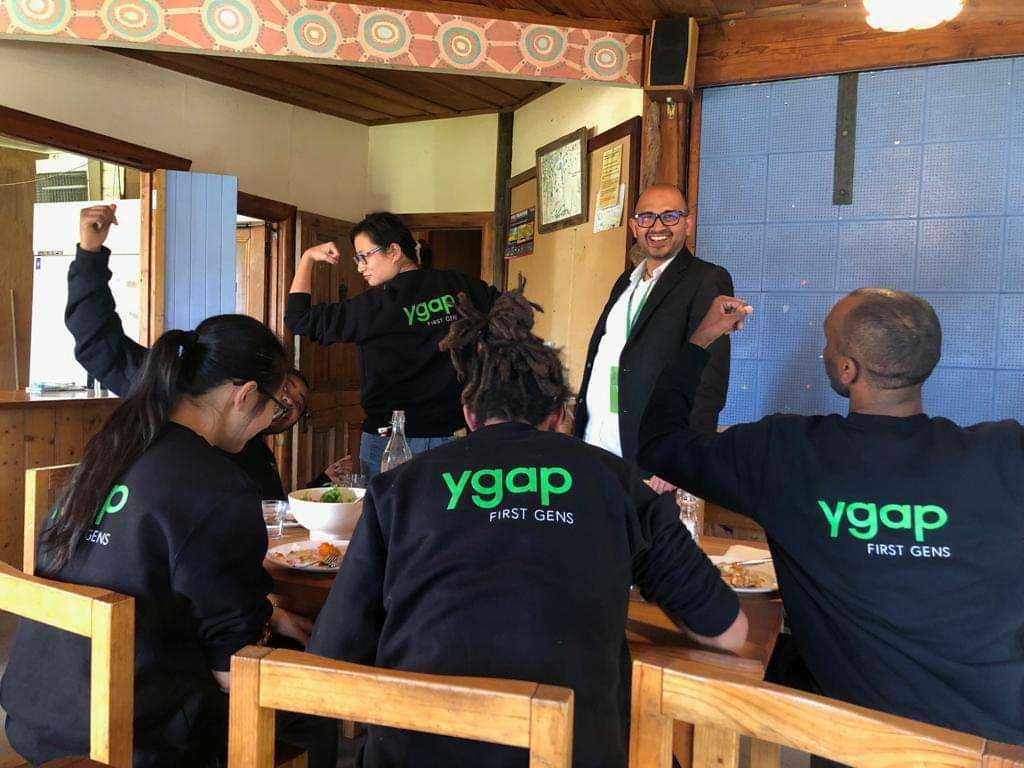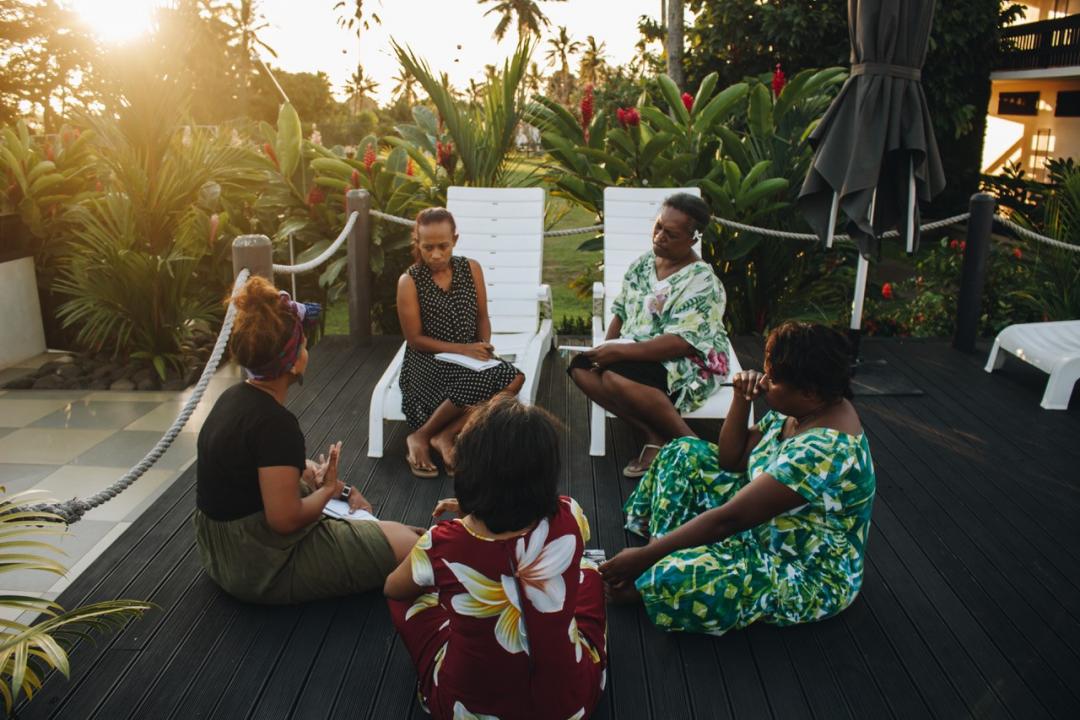ygap - guiding social impact ventures to push business resilience
Hello Kaitlin, could you tell us about yourself and your work at ygap?
I am one of the co-founders of ygap and currently oversee our curriculum and content development as well as our yher programme. ygap is an international development organisation that supports early-stage social impact ventures with locally-led solutions to local problems. We believe in the power of entrepreneurship as an effective and sustainable way to provide opportunities for people to lift themselves out of poverty and disadvantage.
We find, accelerate and support the growth of impact ventures led by local entrepreneurs who deeply understand the unique challenges of their communities and are best placed to develop solutions. We currently support ventures across Africa, South Asia, the Pacific Islands and Australia. ygap has offices and local teams that lead our programmes in each area that we work.
Yher is a programme of ygap which has been developed in response to the fact that, while women are pursuing entrepreneurship more than ever, gender inequality is still deeply entrenched across the global start-up space. yher supports women-led impact ventures with local solutions to local problems and currently runs programmes across the Pacific Islands and Africa.
Why is inclusive business particularly relevant when it comes to building resilience in the private sector, especially in this time of Covid-19?
Low-income communities are most vulnerable to risks like Covid-19 so businesses that offer products, services and business opportunities to these communities play an important role in ensuring these communities can withstand these kinds of shocks now and in the future. By adjusting pricing models or adapting products and services during this time to cater for the needs of these communities, businesses can open up new markets while also helping people at the base of the economic pyramid reach essential goods and services. In the long term, this not only supports the resilience of our most vulnerable communities but in turn, is also great for business and the economy more generally.
From your experience, what does resilience mean in this context?
For me, at the heart of resilience is an ability to adapt. It is a skill that has obviously proven to be crucial for businesses at the moment and I think it will also increasingly be seen as a major competitive advantage. With the pace of change and increased uncertainty in our world, ventures that are agile and prepared to adapt to different scenarios will be those that thrive.
Do you have an example of a company that has proven to be particularly resilient in this time? If yes, what made the company resilient?
Two of our yher Africa ventures have recently shown great resilience in their response to Covid-19. Safe Motherhood Alliance is tackling infant and maternal mortality by providing safe baby delivery kits to women in Zambia. In the last few months they have leveraged their industry knowledge and networks to develop 3D printed face masks for the health sector in Zambia and beyond.
Gender Mobile is combating gender based violence in Nigeria through a dedicated telephone helpline and web-platform to increase reporting and provide support to victims of violence. In response to Covid-19, they developed a contactless hand washing device to help the vulnerable communities they work with access soap and water and prevent the spread of the virus. They also partnered with a local food initiative and re-purposed their call centre to evaluate the needs of the communities they work with and distribute food to vulnerable women and children.
Both of these ventures were connected to the changing needs of their customers, were able to leverage the strong networks they had in their industry, forged meaningful partnerships and were open to exploring significant pivots. They developed new, innovative products that met the needs of their target community and opened up new markets for them.

Kindly describe the Resiliency Toolkit you developed. How does it benefit entrepreneurs? Also, in your opinion, what is the most important tool out of all?
We developed the Resiliency Toolkit as a resource for our alumni ventures to turn to in the wake of Covid-19 but also as one that would help prepare them for any future unexpected events they may face. We were seeing some good literature and resources being circulated in response to the pandemic, but really wanted to create something super practical that we knew would speak directly to where our early-stage impact ventures are at.
The toolkit outlines key actions ventures can take to both prepare for and respond to an unexpected event. It guides them through activities like identifying key risks, how to protect key resources, exploring alternative suppliers, understanding their basic financial position, pivoting their business model, making use of available support and more. The tools tend to build on each other but I think the most crucial exercise for many ventures is the development of contingency plans for their key risks.
This was the foundational toolkit that actually inspired a full series of Resiliency Toolkits that have been used by our team to support our alumni ventures during this tough time. Each toolkit delves deeper into some of the concepts explored in the initial toolkit and have been delivered via webinars to our ventures around the world.
You are the director of yher, a programme that aims to support female-led impact ventures. How is your organization especially helping female entrepreneurs to be and stay resilient in and post-Covid-19?
Our yher programmes (and our wider ygap programmes) are running 3-6 month resiliency programmes or ‘Re-Accelerators’ for a number of our alumni ventures. These programmes were designed in response to a needs-assessment we undertook with our alumni and designed to address the key challenges they are facing during this time.
For our yher Africa Alumni for example, we are providing a tailored programme of strategic support that includes fortnightly strategic calls and fortnightly community calls which explore our Resiliency Toolkits and offer a chance for discussion and shared learning. We are curating regional specific information and resources for our ventures and we also hope to be able to provide some recovery grants to those who need support in responding to Covid-19 or testing new products, services or approaches during this time.
What should entrepreneurs keep in mind for the post-Covid-19 period when thinking about staying resilient?
I think the best thing ventures can be doing right now is observing the key changes that are likely to stick around post-Covid-19 and how those changes will impact their customers. Are there ways they will need to adapt their product/service or perhaps new opportunities they could pursue in response to those changes? Our ‘Preparing for the New Normal’ Toolkit, which will be available here shortly, looks at this in more detail.
Do you think that businesses can benefit from the current crisis, especially those from the Global South?
This has unfortunately been a huge blow to so many businesses, particularly those from the Global South, but I do think that the crisis has forced businesses to take the time and effort to analyse the financial sustainability and overall strategy of their business and make some tough calls. It’s also forced businesses to exercise that adaptability muscle that I think is so crucial to their survival and, as a result, those that do survive will emerge stronger.
Additionally, from what I’ve seen, it seems to have presented an interesting opportunity for some businesses to forge meaningful partnerships with other key players in their industry/ecosystem and I think those collaborations will only serve them well in the future.
